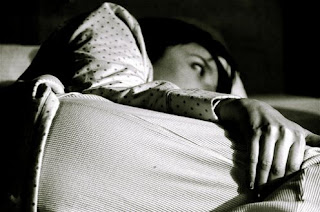More
and more people nowadays are at an increased risk of having insomnia. This is
more likely due to the nature of most occupations common in the present days. More
than 30 percent of the population is known to experience sleeping difficulties.
This condition is twice more common in men than in women. The reason behind
this is that women are subjected to hormonal changes unlike men. It is
characterized by difficulties in initiating or maintaining sleep. Insomnia
causes a person to have an impaired daytime functioning. It affects persons of
all ages, although the chances of suffering from this condition increase as a
person ages. Three common classifications of insomnia include transient, short
term, long term and chronic insomnia. With this, people may manifest daytime
fatigue and drowsiness, sudden mood changes, lack of focus and concentration,
anergia, anxiety, and headaches.
Usually,
insomnia is brought about by stressful situations and factors such as working
in different shifts, jet lag, drug abuse, cigarette smoking, and excessive
caffeine and alcohol intake. Oftentimes the use of certain medications can lead
to insomnia. Examples of these are fluoroquinolone antibiotics and psychoactive
drugs or stimulants like cocaine, nicotine, amphetamines, methylphenidate, MDMA
and modafinil. Inevitable life events including death of a loved one,
separation or divorce, losing a job, and preparing for an examination, make a
person susceptible to this sleeping disorder. Another possible cause for
insomnia involves certain medications. These may include congestive heart
failure and other cardiovascular disorder, neurological problems, mental
disorders, sleep apnea, gastro-esophageal reflux disease, hyperthyroidism,
arthritis, fibromyalgia, urinary problems, Parkinson’s disease and dementia.
Diagnosing
accurately insomnia is vital since the experts need to identify whether there
are other possible serious health problems causing this condition. This will
also help them know the appropriate treatment and management needed. Successfully
treating insomnia includes the combination of pharmacological treatments and non-medical
or behavioral treatments, although the treatment for insomnia may also involve
only one kind of management. Most people can benefit from improving one’s
sleeping habits by maintaining a regular sleeping schedule, avoiding too much
caffeine and alcohol intake before bedtime, not forcing yourself to sleep, and
adjusting the bedroom environment to be more conducive to sleeping. It is also
helpful if the person will avoid going to sleep hungry and also when very full.
Over
the years, experts have used relaxation techniques as a natural insomnia treatment. Before going to sleep, a person is
recommended to meditate for at least 30 minutes. Anxieties and other problems
will be most likely forgotten when a person spends some time relaxing prior to
going to bed. Experts also suggest to do
exercise regularly but not for 3 to 4 hours before bedtime. It is also
recommended for a person to sleep when already feeling sleepy. Some research studies suggest that people
should sleep no later than 10 in the evening. Other effective methods involve
the use of certain oils for massaging, drinking plenty of glasses of water, and
limiting foods that are rich in sugary content. These natural remedies for
insomnia have been proven to be effective especially if applied in combination
with certain pharmacological treatments.

No comments:
Post a Comment